How we treat depression in the future may be set to change as the NHS begins an unprecedented two year study using transcranial magnetic stimulation (TMS).
The £2m study of 420 patients is the largest of its kind and will use therapy systems provided by Magstim, the pioneer of TMS, which is a safe, proven and non-invasive outpatient therapy developed over 25 years ago.
In patients with depression, electrical activity in certain areas of the brain is reduced. Magstim TMS therapy uses a series of repetitive, brief and highly focused magnetic pulses to stimulate brain cells. The Magstim Horizon Performance system being used in the study, uses a focused electromagnetic coil to rapidly pulse a magnetic field to the targeted area of the brain. This induces a small electrical current which stimulates the targeted brain cells into activity, increasing brain activity back to a normal level.
TMS, which has few of the known adverse effects associated with medication or invasive treatments, is accredited by NICE (National Institute for Health and Care Excellence) and is increasingly being used by practitioners in cases of treatment resistant depression (TRD) where antidepressant medication is proving ineffective and before invasive treatments like Electroconvulsive Therapy (ECT) are considered.
Four NHS Trusts are taking part in the new study, which will look at how targeting individually identified areas of under activity in patient’s brain with theta burst TMS affects efficiency and long-term remission.
Currently, in the US, the FDA has issued Magstim 510(k) clearance for delivering TMS to patients, focusing on the same, specific area of the brain (the left-side dorsolateral prefrontal cortex) for a 19 – 37.5 minute session at 10Hz. The new study will involve carrying out an fMRI (functional magnetic resonance imaging) scan of each patients’ brain to pinpoint their exact area of reduced activity, which can vary by patient, prior to treatment.
Half of the participants will then have a ‘personalised’ therapy session, targeting the exact area of their brain identified as being under active, using theta burst TMS – a newer form of TMS that can be delivered in as little as three minutes, versus 37.5 minutes for a standard 10 Hz TMS treatment session. The other half will have a standard TMS therapy session as per the current FDA protocol. The groups will not be aware which treatment they are receiving as each session will appear to last 37.5 minutes.
The study hopes to establish whether a personalised approach to treatment using theta burst TMS offers greater remission rates and longer lasting effects, compared to the current TMS protocol.
Northampton’s Berrywood Hospital, Newcastle’s St Nicholas’s Hospital, Nottinghamshire’s Millbrook Mental Health Unit at Queen Medical Centre and St Pancras Hospital in London are all currently recruiting patients for the study, which will roll out between November 2018 and January 2019. Participants of the study will not have previously had ECT.
Magstim’s Group CEO Lothar Krinke said: “This is an unprecedented study that could inform the future of depression treatment around the world. Magstim TMS therapy has already changed the way practitioners are able to treat depression, offering both medical professionals and patients new hope for recovery, and we always encourage further research to see how our technology can further enhance treatment.”
He adds:
“We are working closely with the four trusts involved in this new study, not only providing our latest therapy system with a new, innovative navigation system that allows even more accurate targeting with the coil, but also providing expert training to the researchers to ensure they get the best results from the machines. We have been working with researchers across the globe for the last 25 years, watching the incredible results TMS achieves for patients. We look forward to the outcome of this study, as I’m sure many medical professionals from around the world will too.”
“The treatment is also likely to be more efficient in terms of staff time so even with imaging and more capital investment, the new treatment is likely to save costs compared to traditional TMS.“
Professor of Psychiatry at the University of Nottingham Richard Morriss, involved in the study, said: “Treatment resistant depression is a devastating condition associated with premature death from suicide or poor physical health and an impaired ability to work. We have had a limited degree of success with talking therapies and antidepressant drugs. Now we have a safe third option using stimulation by magnets called transcranial magnetic stimulation (TMS).
“We have changed the way the magnets deliver their energy and using brain imaging we have targeted the stimulus more accurately in each person. By doing this we hope this safe treatment can help more people to stay well for many months at a time from rather than a few weeks at a time. The treatment is also likely to be more efficient in terms of staff time so even with imaging and more capital investment, the new treatment is likely to save costs compared to traditional TMS. ”
As awareness of the treatment grows amongst patients and professionals, TMS is proving to be a popular, and very successful, therapy in the UK, particularly in the private healthcare market.
Dr Nikhila Deshpande, Senior Consultant Psychiatrist and Director at Tranquil TMS in Manchester, has been treating patients using TMS therapy since the start of the year. She said: “I have been fascinated by the incredible responses that we have had from patients. It has done wonders for so many of them. There are a population of patients who just do not respond to antidepressant treatment and this has been an excellent option for them.”
“There are times when you can feel helpless, when you feel medical science is failing a patient and there are no other options that you can provide them with. TMS is a very, very good treatment and has given many of my patients real hope for the future. We often see results in just a week – it’s been amazing.”
“I have one patient who said they always lived in fear of a relapse but, since being treated with TMS therapy, they no longer feel that fear. They don’t feel like their life is on hold any more.”
“rTMS is a very well tolerated, pain free treatment that can easily be incorporated into the patient’s day with very little disruption and, of course, most importantly, it works.”
Dr Meetu Sonsati, Consultant Psychiatrist and Managing Director at Oaktree Clinic in Birmingham, said:
“We adopted this relatively new treatment in our clinic a year and a half ago and have treated 27 patients so far. We find that the rTMS is a very well tolerated, pain free treatment that can easily be incorporated into the patient’s day with very little disruption and, of course, most importantly, it works.”
“As a clinician I feel confident to prescribe this effective treatment for depression and would be more than happy to consider this as an option for treatment of family and friends if they were to suffer from depression. The treatment is well supported by research as well as anecdotal experience. It adds immensely to our services here at The Oaktree Clinic.”



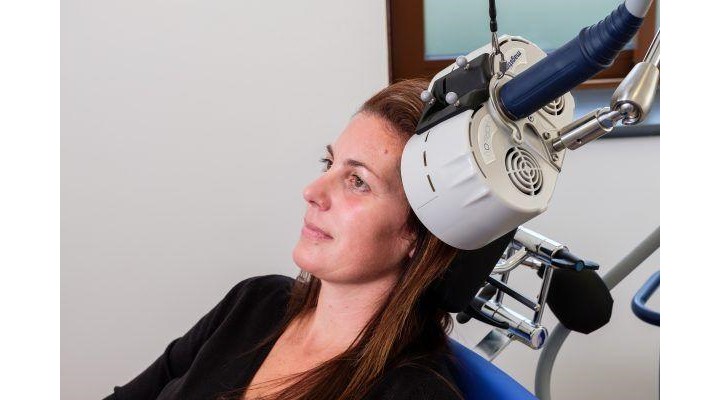
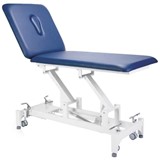

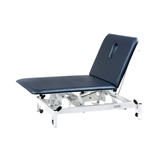








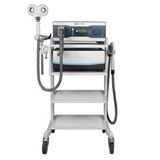
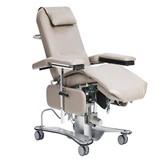

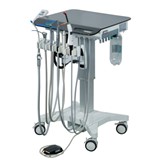

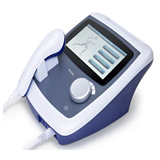
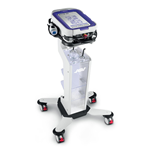





-205x205.jpg)






